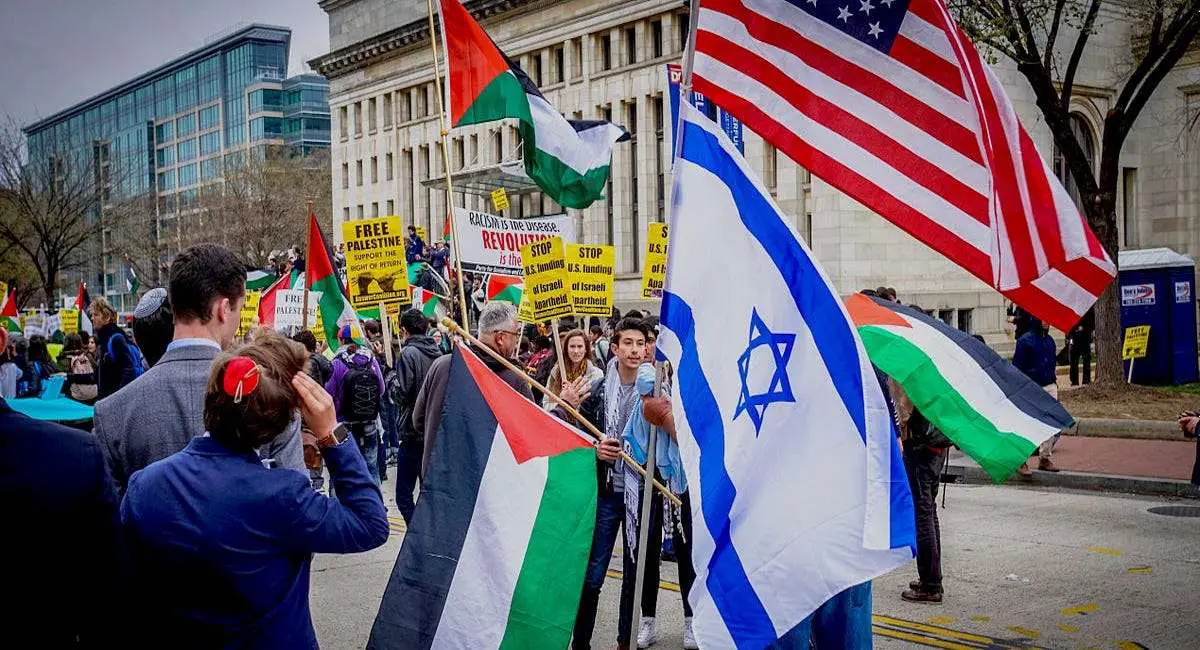Israel-Gaza Conflict : Escalating Tensions
Table of Contents
Rising Tensions and Unrest: A Closer Look at the Recent Events in the Middle East (Israel-Gaza conflict)
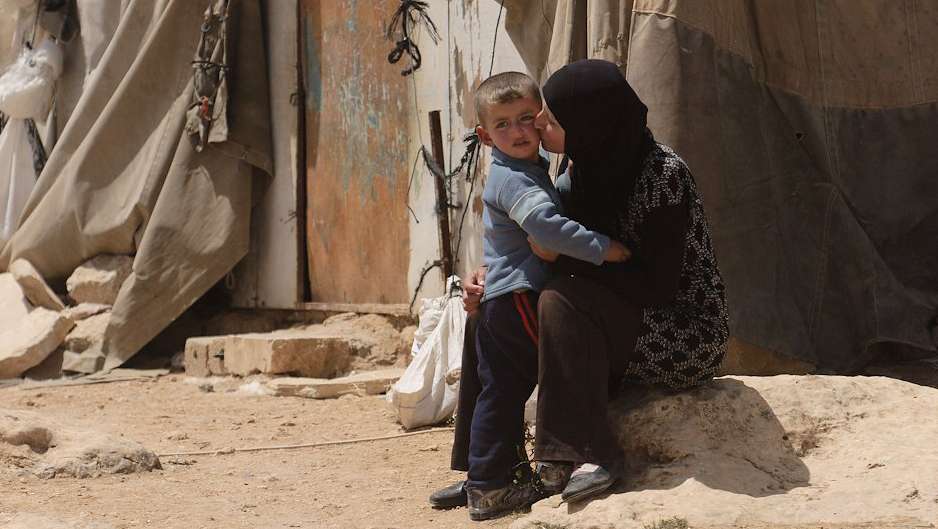
The Trigger The recent surge in violence in the Middle East (Israel-Gaza Conflict) was triggered by separate attacks in the West Bank and Tel Aviv. These attacks resulted in the tragic loss of three lives. The incidents marked a significant escalation in an already tense situation, further fueling the conflict in the region.
Israel’s Response In response to these attacks, Israel launched strikes against Palestinian militant targets. These targets were located in southern Lebanon and Gaza. The strikes represented a decisive and forceful reaction from Israel, concluding three days of rising tensions in the region.
The Al-Aqsa Mosque Incident The backdrop to these events was a series of police raids on the al-Aqsa mosque in Jerusalem. The mosque, one of the holiest sites in Islam, has often been a flashpoint in the Israeli-Palestinian conflict. The raids have added to the tensions, leading to an escalation in violence.
The Aftermath The aftermath of these events has left the region in a state of heightened tension. The cycle of attacks and retaliations has raised concerns about a potential larger conflict. The international community is closely monitoring the situation, hoping for a de-escalation and a return to peace talks.
Escalation and Tragedy: A Detailed Examination of Recent Events in the Israeli-Lebanese Conflict
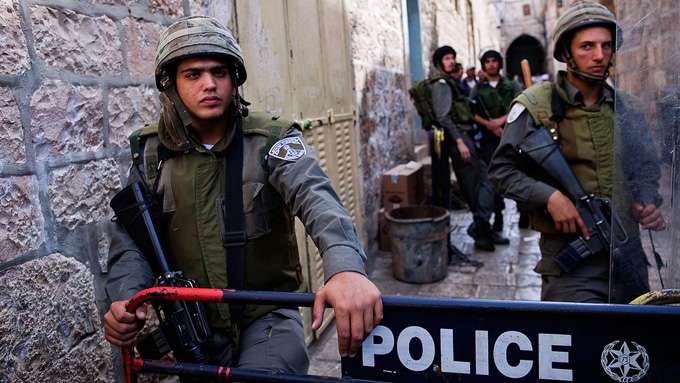
The Provocation The recent escalation in violence between Israel and Lebanon was provoked by a significant rocket attack on Israeli territory. This attack, which the Israeli military attributes to Palestinian militants, involved dozens of rockets fired from Lebanon. This barrage represents the most substantial since the 2006 war between Israel and Lebanon, marking a serious escalation in hostilities.
Israel’s Retaliation In response to the rocket attacks, Israel launched a series of strikes against targets in Lebanon. These strikes came just hours after the initial rocket attack, indicating a swift and decisive response from the Israeli military. The rapid retaliation underscores the heightened state of tension between the two countries.
The Human Cost The human cost of the escalating violence became tragically apparent when two sisters, aged 16 and 20, both holding dual British-Israeli citizenship, were killed in a shooting attack in the occupied West Bank. Their mother was also seriously wounded in the attack. This incident serves as a stark reminder of the devastating impact of the conflict on civilians.
The Wider Implications The recent events have wider implications for the region and the international community. The escalation in violence has raised concerns about the potential for a broader conflict, and the tragic loss of life underscores the urgent need for a peaceful resolution. The international community is closely watching the situation, with hopes for a de-escalation and a return to peace talks.
Terror in Tel Aviv: A Detailed Account of the Recent Attacks and Israel’s Response
The Attack In a shocking turn of events, a group of tourists was targeted in a vehicular attack in Tel Aviv. Described by Israeli authorities as a “terror attack,” this incident resulted in the death of an Italian man and left seven people wounded. Among the injured were three British tourists and another Italian citizen. As of Saturday morning local time, three of the injured were still receiving treatment at the Ichilov Medical Center, while the other four had been discharged.
The Victims The victims of this tragic incident were largely tourists, highlighting the indiscriminate nature of such attacks. The loss of life and the number of injuries underscore the severity of the situation. The fact that some of the victims were still in the hospital as of Saturday morning indicates the seriousness of their injuries.
Israel’s Response In response to the attack, Israeli Prime Minister Benjamin Netanyahu has taken decisive action. He has instructed the Israel Police to mobilize all border police units in reserve. Additionally, the Israel Defense Forces (IDF) have been ordered to mobilize additional forces. This response indicates a commitment to maintaining security and preventing further attacks.
The Implications These recent events have significant implications, both domestically and internationally. The attack on tourists has the potential to impact Israel’s tourism industry and international relations. Furthermore, the mobilization of additional forces suggests a potential escalation in the conflict. As the situation continues to unfold, the international community will be watching closely.
High Alert and International Reactions: A Detailed Overview of the Recent Middle East Crisis
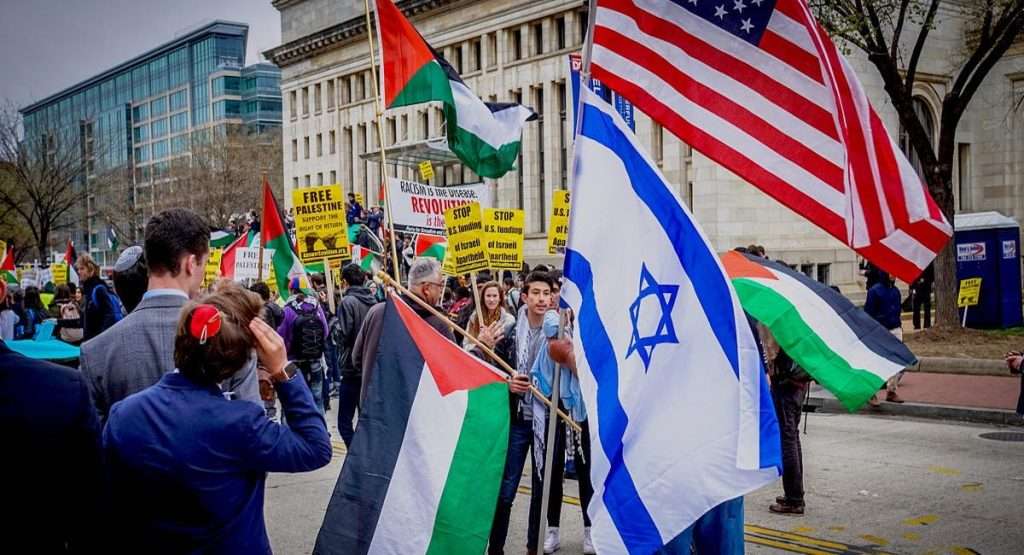
Israel’s High Alert In response to the escalating violence, the Israeli military has declared a state of high alert. Amid what it describes as “very volatile times,” an unspecified number of reservists have been called up. This move indicates the severity of the situation and Israel’s commitment to maintaining security.
U.S. Condemnation and Support The United States has issued a strong condemnation of the terrorist attacks in the West Bank and Tel Aviv. In a statement issued by State Department deputy spokesperson Vedant Patel, the U.S. described the attacks as “horrific,” resulting in the death of three people and injuries to at least eight others. The U.S. stands with the government and people of Israel, reaffirming its enduring commitment to their security.
Impact on Civilians The attacks have had a significant impact on civilians from various nationalities, including citizens of Israel, Italy, and the United Kingdom. The U.S. has described the targeting of innocent civilians as “unconscionable,” highlighting the tragic human cost of the conflict.
Palestinian-Israeli Response Following the attack in Tel Aviv, Mansour Abbas, the leader of the United Arab List and a Palestinian-Israeli Knesset member, rejected any use of violence against any citizen. He emphasized that the attack does not represent the way of the Arab community and the Arab citizens in Israel, indicating a call for peace and non-violence.
Convergence of Frontiers: The Escalating Conflict in the Middle East
Arab Leadership’s Stance The Arab leadership, headed by Ra’am and the Islamic Movement, has taken a firm stance against violence. Mansour Abbas, a key figure in this leadership, has stated that they will not accept violence against any citizen, regardless of their religion, race, or nationality. This statement underscores their commitment to peace and respect for all individuals.
IDF’s Perspective Lt. Col. Richard Hecht, the international spokesperson for the Israel Defense Forces (IDF), described the situation as a “convergence of frontiers.” He explained that an event that began in Jerusalem has expanded to Gaza, Hamas, and into Lebanon. This highlights the complexity and interconnectedness of the conflict in the region.
Israeli Airstrikes and Rocket Launches In response to the rocket attacks, Israeli airstrikes targeted an open area near the southern coastal city of Tyre in Lebanon. The Israeli military believes that Palestinian factions launched dozens of rockets from this city. Israel has blamed Hamas, the militant group which controls Gaza, for these rocket launches.
IDF’s Stance The IDF has made it clear that it will not allow Hamas to operate from within Lebanon. They hold the state of Lebanon responsible for every directed fire emanating from its territory. This statement indicates Israel’s determination to hold parties accountable for their actions and to ensure its national security.
Regional Intervention and Mediation Efforts Amid Rising Tensions
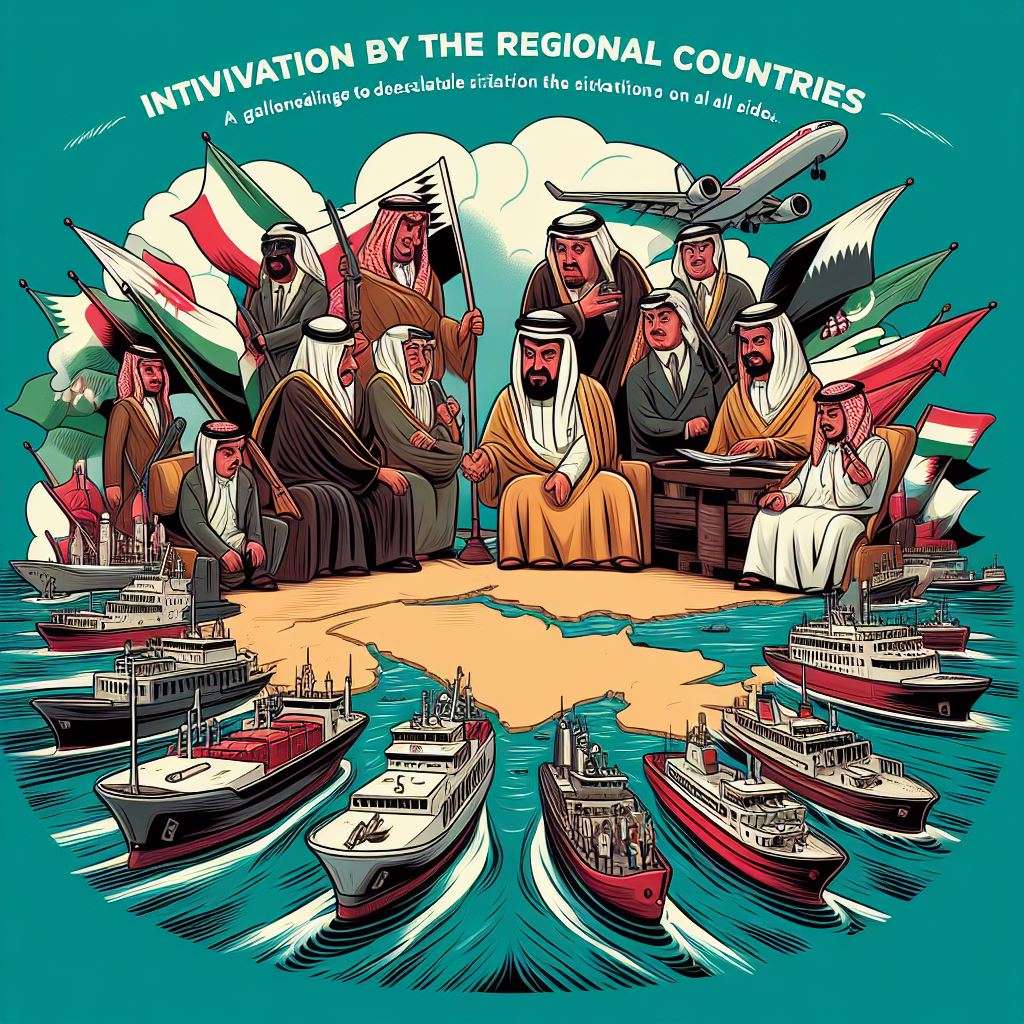
Intervention by Regional Countries In an attempt to de-escalate the rising tensions in the Middle East, some regional countries have reportedly intervened. Notably, a Qatari official has stated that Qatar, a gas-rich Gulf country, is actively mediating to deescalate the situation on all sides.
Qatar’s Goal Qatar’s primary goal in this mediation effort is to prevent unnecessary bloodshed and avoid destructive consequences for Palestinians and civilian populations. This highlights Qatar’s commitment to peace and stability in the region.
Uncertainty Over Communication However, it remains unclear which of the warring parties Qatari officials have been communicating with. It’s worth noting that Qatar does not have official diplomatic relations with Israel, which could potentially complicate their mediation efforts.
Aftermath of Israeli Airstrikes The situation on the ground remains tense, with the aftermath of Israeli airstrikes on Salah al-Din Road in Gaza still evident as of April 6. This serves as a stark reminder of the ongoing conflict and the urgent need for effective mediation and conflict resolution.
Summary
The recent escalation in the Middle East has seen a series of violent incidents, including attacks in the West Bank and Tel Aviv, rocket launches from Lebanon into Israeli territory, and Israeli airstrikes on targets in Lebanon and Gaza. These events have resulted in significant loss of life and injuries among civilians, including citizens of Israel, Italy, and the United Kingdom. In response to these attacks, the Israeli military has declared a state of high alert, mobilizing an unspecified number of reservists. The U.S. has strongly condemned the attacks and reaffirmed its commitment to Israel’s security.
Efforts to de-escalate the situation are underway, with Qatar, a gas-rich Gulf country, reportedly mediating to prevent further bloodshed and destructive consequences for Palestinians and civilian populations. However, it remains unclear which of the warring parties Qatari officials have been communicating with, given that Qatar does not have official diplomatic relations with Israel. Meanwhile, the aftermath of the Israeli airstrikes and the ongoing conflict underscore the urgent need for effective mediation and conflict resolution.
Get more Tech contents from here,
Get more News Content from here,
Get more Product Reviews from here,
